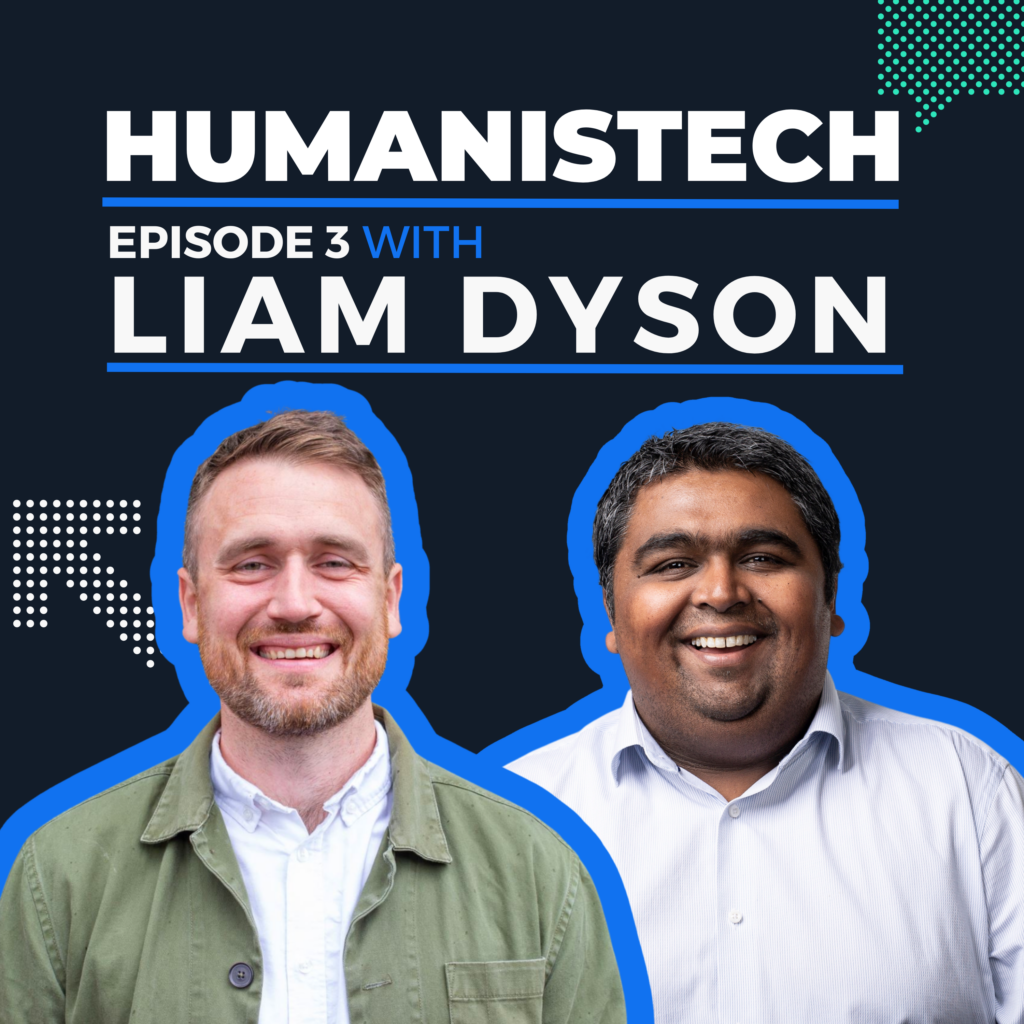The internet is saturated with articles on app development costs‚ many of which offer example pricing ranges based on loose criteria and rough project sizes. This makes it very difficult to get an accurate idea of how much your app will cost to develop.
You’ve probably seen a range of figures being thrown about‚ from the impossibly low to the uncomfortably high.
We would always caution against relying too heavily on generalised figures when arriving at your app development budget. There’s really no blanket or catch-all statement which can be taken as gospel. Your project is unique after all‚ and so is the price.
The precise cost of app development varies based on a number of factors and is ultimately arrived at through a bespoke consultation between the developer and their client.
Costs range from £10‚000 – £50‚000 for a very simple application‚ to over £500‚000 for an extremely complex and feature-rich enterprise build. It all depends on how complex your idea and your desired timescales for development and launch.
How to get a price for your app project
- If you have a brief or idea ready to go and want to speak to one of our consultants about how much this would cost to deliver‚ we’re happy to help. Contact a member of our team here.
- If you’re looking for more general information and a full breakdown of the factors affecting app development costs‚ read on.
How are app development costs estimated?
The cost of developing an app is often linked to the methodology developers use to ascertain how much internal effort is required to build a functioning project. There are two distinct methods for this:
Fixed Price (also known as “Waterfall”)
A fixed price means you agree on a single‚ predetermined sum for a specified scope of work to be delivered within a defined time period.
To give a fixed price‚ developers will need to gather and document requirements in great detail through an intensive up-front process. This can lead to a long upfront planning process to decide features and functionality right at the beginning.
This fixed scope from the outset may sound acceptable in principle‚ but it leads little room for new features to be added to the project as new information becomes available‚ including invaluable insights gathered from user research.
This can become a huge constraint on the success of your app‚ as you will find it hard to embrace change and stay agile.
The focus of fixed price is also on delivering the agreed scope of work‚ not delivering the best product.
There is also a high risk that you will build a product that doesn’t fit user needs. It also becomes very difficult to change the product quickly in line with market shifts or legal requirements.
There are certain scenarios where fixed price does work well. It is particularly well suited to small projects with a limited scope that will not change‚ or when an intensive Discovery process has been undertaken to thoroughly understand the stakeholder‚ user and market needs.
Time and Materials (also known as “Agile”)
Time and materials is a billing schedule where clients are billed for the time experts spend on designing and building a mobile app based on an hourly rate that has been agreed upon in advance and defined contractually.
The main benefit of this approach is flexibility. The process is usually undertaken in sprints – a short‚ time-boxed period when a team works to complete a set amount of work.
Each sprint usually has a clear goal‚ e.g. “successfully implement the payment gateway” and will follow a wider Product Roadmap‚ a high-level visual summary that maps out the vision and direction of the app over time.
The Product Roadmap is a live planning process that constantly adapts to new information and new insights. This means that each sprint is planning using a greater understanding of the problem‚ resulting in a better product that is adapted to current market conditions and user expectations.
With T&M there is also a focus on building a Minimum Viable Product – a version of your product stripped down to the core functionalities‚ separating out the “must-haves” from the “nice-to-haves.”
This has a knock-on impact on the cost of your app‚ as a smaller set of features cost less to deliver.
There is understandably a worry with T&M that costs will be unpredictable‚ however‚ a good development team should provide regular updates on the cost and deliverables of each sprint and expected costs for the next phase of work.
The total cost of building and launching a successful mobile app
App development‚ unfortunately‚ isn’t a case of “build it and they will come.” A successful app is the product of thorough research‚ market validation and gathering user feedback over several phases.
The App Development Process

Alongside budgeting for product development costs‚ it’s also important to consider the ongoing costs of enhancing and promoting your app‚ including marketing costs associated with performance marketing‚ ASO and CRO.
This is especially important if your app is focused on B2C and your revenue model is reliant on user acquisition.
According to app retention data shared by Andrew Chen‚ the average app loses 77% of its daily active users within the first three days of the initial install. Within 30 days‚ that figure rises to 90%. After 90 days‚ over 95% of daily users are lost or less than 5% are kept engaged.
To keep your mobile users engaged‚ you will need to ensure you have a suitable marketing budget to reduce churn and increase user acquisition. Based on an analysis of app marketing data‚ Business of Apps have recently advised that app marketing strategies should be based on a minimum budget of $10‚000.
How long does it take to develop a mobile app?
Much like cost‚ the time to develop a mobile app is reliant on a number of factors and is inherently tied to the complexity of the desired product.
A mobile app can take anywhere from one month (with minimal features) to over a year for complex enterprise applications delivered on a waterfall basis.
This question also depends on what you consider to be the finish line. We typically work with companies to get an Agile MVP to market as soon as possible‚ working in clearly defined Sprints.
This focus on iterative‚ tightly scoped‚ releases ensures we get mobile apps to market in weeks not months.
As with any software‚ an app is never truly finished but reaches a point where further development does not translate into more value. You should be constantly mindful of developing features that give meaningful impact to the platform and have the discipline to pause when you reach the level of diminishing returns.
What complexities increase the cost of app development?
Features and Functionalities
One of the biggest complexities affecting app development costs is the number of features the app is required to have.
Features are the “tools” users use within an app to complete a set of tasks or actions – e.g. maps that allow a user to see their location. Functionality is how those features actually work to enable users to complete their desired outcome‚ e.g. geolocation.
The more features an app is required to have‚ the more it’s going to cost to deliver. It’s a pretty simple relationship.
This is why we work closely with clients to define an MVP in the first instance and add to it iteratively‚ as paying for non-critical features and functionality upfront runs the risk of inflating costs without knowing what will actually add value to users.
Type of Integrations
There are multiple types of integrations that can be facilitated between a mobile application and other platforms or external applications. For example‚ you may require your mobile app to integrate into your existing CRM or ERP system.
Typically this integration is done through a RESTful API‚ which is the standard application communication architecture used across the web. Following the examples given above‚ if your CRM has an existing RESTful API that can be used‚ this makes integration reasonably straightforward.
If you need to connect to a legacy system that does not have a RESTful API‚ this can incur additional costs as it is likely a modern API will need to be built from scratch to ensure the data can be extracted and consumed in a stable format.
Alongside the type of integration‚ the number of integrations also increases both the complexity and cost of your app.
Required Platforms
Alongside the number of integrations and features‚ the cost of an app can also vary significantly depending on the technology stack and platforms required.
Building Native Apps
The term native app development refers to building a mobile app exclusively for a single platform‚ either iOS or Android.
Developing native apps requires code to be written using platform-specific development languages such as Java‚ Kotlin or Swift. If you want your app to be available natively on iOS and Android‚ you will require two codebases to be written and maintained for the lifetime of the app.
This is why building natively is usually significantly more expensive than building a cross-platform application.
Building Cross-Platform/Hybrid Apps
Cross-platform development‚ also known as hybrid development‚ enables developers to build a single application that can run on both iOS and Android. This is typically done using established cross-platform frameworks such as Flutter or React Native.
As only one code base needs to be developed‚ a cross-platform app can be cheaper to develop than corresponding native apps.
In some cases‚ cross-platform development can be half the cost of native development.
How much does it cost to maintain a mobile app?
Every app will have an ongoing maintenance cost associated with it post-launch‚ regardless of who has built it.
Regular updates are critical to maintaining your app’s security and performance. You will also want to add or upgrade features and functionality as your app grows.
The maintenance cost of your app will vary depending on the same factors that influence the initial development costs‚ such as the number of platforms‚ functionalities and integrations required.
How much does it cost to build an app in the UK?
As a UK-based app development company‚ we built successful apps for clients across the globe. It’s always interesting to ask clients why they are considering a UK-based agency as opposed to one in or closer to their location.
One of the frequent answers we get is that the quality and experience of UK-based agencies is unmatched (though we do admit there’s a bit of jostling for the top app developer position with the US!).
Typically hourly development costs in the UK range from £70 – £200‚ with day rates ranging from £600 – £1000. This will typically be based on a blended rate card‚ though some companies will offer a price dependent on the resource type.
You will occasionally find companies quoting £30 an hour or even less. This is definitely the bottom of the market in terms of pricing.
In theory‚ this pricing could be attractive‚ but it doesn’t necessarily represent value for money. You have to ask whether you will be getting the level of service and quality you need to deliver a successful app. It may look cheap at first sight‚ but you may end up paying more to rectify rushed or poor code. We have certainly rescued a number of projects in this position.
Comparing App Development Costs: DIY vs. Freelancers Vs. Agencies
No-Code App Development Platforms
There are a number of no-code (sometimes called low-code) platforms that allow you to build very basic apps using drag and drop tools. Think WordPress or Webflow‚ but for mobile applications.
The great thing about these platforms is that they are accessible to non-developers and they typically provide templates that can help you get started. We often recommend early-stage start-ups build an extremely basic outline of their idea using no-code platforms in order to validate initial ideas and conduct basic user research.
If you’re considering going down the no-code route‚ there are a few things to consider.
No-code platforms are great for building simple ideas‚ but they are typically not well-suited to building complex functionalities or integrating with third parties. There may also be limits on how much control you have over the UI and branding elements of your app‚ alongside limits on staging environments and the ability to thoroughly test features before they launch.
The pricing model for these platforms is typically subscription-based‚ with costs ranging from £20 to £1000 per month‚ depending on the platform you select.
Mobile App Development Freelancers
Whilst a mobile app freelancer may be cheaper than using an agency‚ there are drawbacks that should be taken into consideration.
Freelancers suffer from a lack of scalability‚ which affects their ability to guide businesses through the thorough Discovery‚ QA and Implementation processes necessary for success.
Whilst in most cases they are capable of delivering a functioning product‚ these other processes are crucial to ensuring that the application they produce solves a real problem‚ has a measurable user appetite‚ is fit for purpose and is implemented following best practices.
Even for large-scale agencies‚ these stages involve considerable time and effort‚ with entire teams often dedicated to a single part of the process. Whilst these steps are often overlooked by freelancers‚ they should be considered crucial to building a product that is poised for success.
To summarise: Without the capacity to carefully plan‚ test and implement mobile applications‚ freelancers often create products that function perfectly well but struggle to build a consistent user base or achieve overall success.
Established App Development Agencies
Using an established app development agency is one of the most versatile and trustworthy ways of commissioning mobile app development.
With a growing market of suppliers‚ all of whom have different specialisms and team sizes‚ agencies provide a scalable‚ competitive and flexible solution to the requirements of your business. Their team structures and product offering are often less rigid than the alternatives‚ allowing for a true supplier partnership‚ and most have bespoke teams of experts‚ allowing you to extrapolate the most value possible from your choice of supplier.
Another important advantage of working with an agency is that depending on their specialisms they are likely to have either already gained relevant experience in your industry or created products for businesses of a similar shape and size.
Where all other alternatives for mobile app development are limited to a specific business demographic by virtue of their own capacity‚ agencies vary massively in their capabilities‚ with some able to expand limitlessly to provide bespoke solutions for even the biggest clients.
Enterprise Consultancies
Enterprise consultancies are often seen as the top-market choice for large-scale development projects- however‚ they may not be the best fit for your business goals.
Due to their large size and rigid delivery structure‚ enterprise consultancies are generally unable to be as flexible to client requirements as a development agency can be. As a result of this‚ it can be difficult to form a true partnership where supplier and client work together to produce a successful solution.
Whilst this may raise questions about the ability of smaller agencies to handle large corporate contracts‚ it is worth pointing out that some are able to expand without limitations through nearshore developers when the contract requires.
Another reason large businesses gravitate towards enterprise consultancies is due to the prevalence of their brand both in the industry and in the press. However‚ it is worth noting that this is not an absolute guarantee of quality‚ with even the largest consultancies making mistakes that have cost businesses millions.
What is the cost of developing an app?
‘How much does it cost to build a mobile app?’ is a difficult question to answer without understanding the specific business requirements‚ proposed product functionality‚ and the user problems the app is attempting to solve. These things are generally mapped against a project management methodology to produce a completely bespoke total cost.
To make a successful mobile application requires a variety of specialisations and skills‚ and the cost to produce an MVP goes beyond a simple V1.0 budget. In addition to the initial investment in Discovery‚ Design‚ Development and Project Management businesses will need to factor in payment for further updates‚ server costs and marketing.
Whether you’re looking to put your idea into practise or you’ve already secured funding to produce an industry-disrupting mobile application‚ you need to evaluate the total costs involved in not only producing an app but producing an app that is well-supported far into the future.
Looking for a delivery partner that will work with you to identify‚ create and launch innovative technology products whilst providing clear ROI and long-term competitive advantage? Read our case studies or get in touch today.





